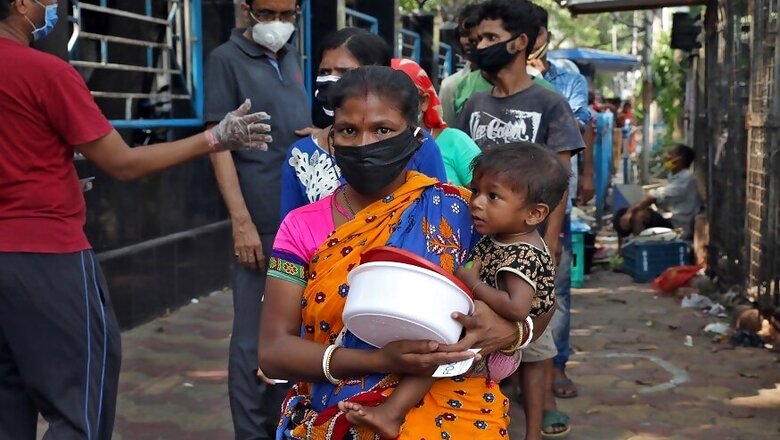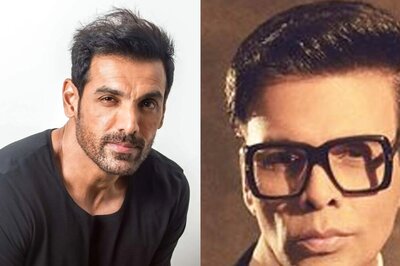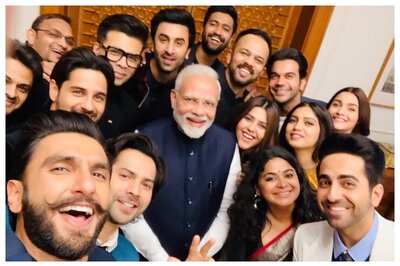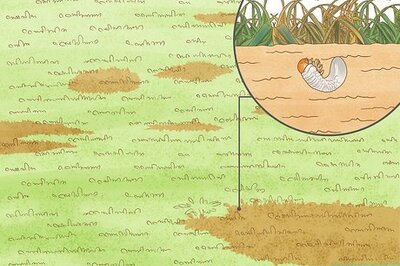
views
New Delhi: Experts say poor nations face “a sobering prospect” in their fight against COVID-19 as various factors, including maximisation of returns on investment in pharmaceutical intervention, may lead to prioritisation of access to the antidotes currently at various phases of clinical trials.
“Rich countries might seek to prioritise vaccine doses for their own people. Millions of less well-off people died because of inequitable access to life-saving antiretrovirals (in the past), and the same trend might occur with COVID-19,” epidemiologists James Hargreaves and Calum Davey wrote this week in ‘The Lancet’ journal on the lessons learnt from the HIV-AIDS outbreak.
In absence of a credible and tested intervention to ameliorate the impact of the COVID-19 global pandemic, high-income economies have sought to introduce short-term behavioural changes such as extreme social distancing to contain the spread of the disease while shoring up investment in vaccine and drug research.
However, poorer nations with high population density may find it difficult to emulate some of these measures for an extended period. Experts say the means and measures to combat the global pandemic need to be customised to suit the social, cultural and economic milieus in developing countries.
The first outbreak of Ebola was recorded in Congo in 1976 with a mortality rate as high as 80%. Lack of both investment and urgency in combating the ailment perhaps stemmed from the fact that the disease never really threatened to disrupt the normal life outside of the impoverished west-African nations. There was no market and few buyers for the drugs -- the investment, on the other hand, was on the higher side.
After multiple trials spanning over a decade, the US Food and Drug Administration (FDA) in December 2019 approved Ervebo, the first FDA-approved vaccine to prevent Ebola.
Remdesivir, an investigative drug at various stages of trial for Ebola, is now being actively considered to treat COVID-19 as nations on either side of the Atlantic count their losses -- both human and economic.
As the coronavirus spread to Europe and North America at an exponential rate, developed nations’ search for the vaccine is galloping in earnest.
“There’s only one drug right now that we think may have real efficacy. And that’s Remdesivir, as you have heard about,” said Bruce Aylward, senior adviser and international leader of the World Health Organization's joint mission to China as the virus battered Wuhan in February.
“As bad as the epidemic is now in East Asia, Europe and North America, its impact will be far worse in low- and middle-income countries, which already have shortages of medical supplies and health professionals and are unable to inject the billions of dollars into their health systems and economies that high-income countries have been able to do in response to this pandemic,” said Dr Adam Levine from the Warren Alpert Medical School of Brown University in an interview last month. Levine has rich experience in designing preventive mechanisms against the Ebola outbreak in Africa in 2014.
The Global Alliance for Vaccine and Immunisation (GAVI), a non-governmental organisation working to provide access to vaccines in poor countries, has been expressing concerns over inequitable access to preventive and supportive aid to the developing world in combating the global pandemic.
Over the last month, India has seen some of the shipments bringing in COVID-19 testing kits from China being diverted to the US.
On a promotion or otherwise in February, GAVI CEO Seth Berkley warned of issues arising out of resource crunch staring at poorer nations.
“Let’s just say this vaccine is now produced in the US. Are we going to make it available in other countries before we vaccinate the 350 million people in the US? If it’s in the European Union, it’s going to be the same issue,” he said.



















Comments
0 comment